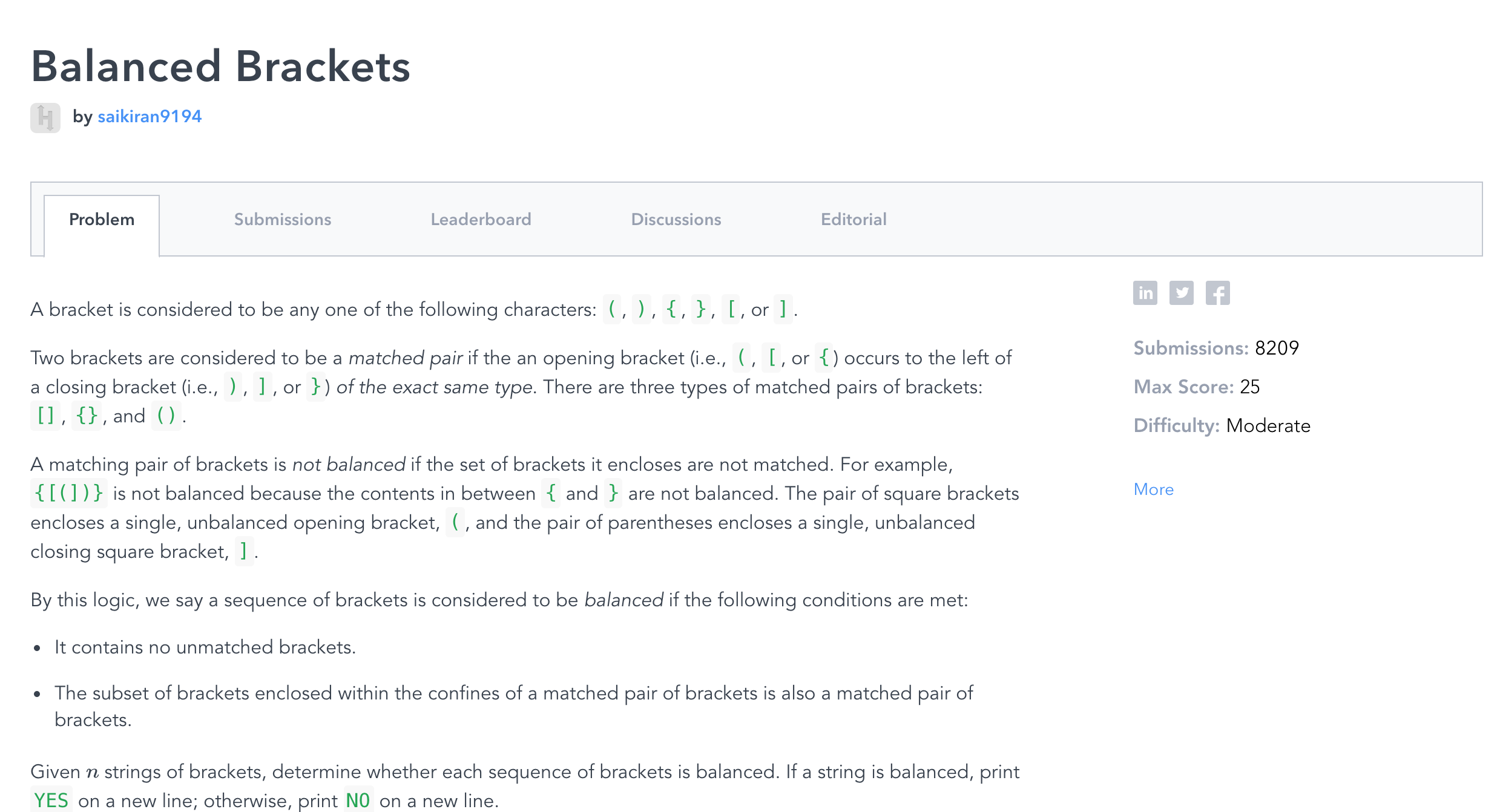I solved this stack problem in Swift. Looking for any feedback on my code:
import Foundation
/// Returns an integer read from one line of standard input.
func readInteger() -> Int {
guard let line = readLine() else {
fatalError("Unexpected end of input")
}
guard let i = Int(line) else {
fatalError("Invalid integer in input")
}
return i
}
/// Returns an array of Characters
func readStrings() -> [Character] {
guard let line = readLine() else {
fatalError("Unexpected end of input")
}
return line.characters.map{ $0 }
}
// checks if all brackets are balanced
func balancedBrackets() {
let sequences = readInteger()
// outloop loops through each sequence line
outerLoop: for _ in 0..<sequences {
// create a stack (array in this case)
var stack = [Character]()
// each line of sequence
let sequence = readStrings()
// edgeCase is when there are only opening brackets in stack and didn't reach case } ] )
var edgeCase = false
// inner loop loops through each bracket character
innerLoop: for bracket in sequence {
switch bracket {
// if opening brackets, append and set edgeCase
case "{", "[", "(":
stack.append(bracket)
// case closing brackets
case "}", "]", ")":
// checks for empty stack or if the bracket pairs arent matching
if stack.isEmpty || (bracket == "}" && stack.last != "{") || (bracket == "]" && stack.last != "[") || (bracket == ")" && stack.last != "(") {
edgeCase = true
print("NO")
// append closing bracket so YES doesn't print when breaking
stack.append(bracket)
// break out of checking anymore brackets
break innerLoop
}
stack.removeLast()
default:
fatalError("unknown bracket found")
}
}
// if empty
if stack.isEmpty {
print("YES")
} else if !edgeCase { // stack has opening brackets and hasn't reach if statement in case } ] )
print("NO")
}
}
}
balancedBrackets()

